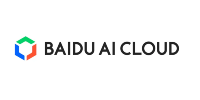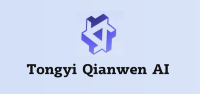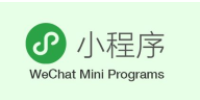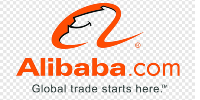Generally, the internet business profiles of giant BAT companies operate similarly to those of Google, Microsoft, Amazon, and others.
The BAT companies are estimated to directly or indirectly control over 70% of the internet business and transactions in China.
There is a significant difference between how businesses approach the Chinese Internet and the rest of the world. Most Chinese companies are part of an existing B2B or social media platform and do not have a business website.
The BAT company's domination of the internet in China is in part due to the following:
- the histrionic concerns in publishing internet content in China. Using Chinese platforms does not require ICP certification,
- speed of implementation,
- the cost of developing a website in China is 100% to 200% higher than in the USA or Europe,
- the lack of experience in IT skills in Chinese businesses,
- BAT's overall control of the markets,
- The integration of the services, such as website, messaging, social media, and payment processing, within each BAT platform,
- The e-Mall and e-commerce platforms have been highly successful, as they seamlessly integrate online store processes with traditional business operations, including storage, shipping, and returns. This is very similar to the services supplied by Amazon outside China.
In the 2000's, each BAT company achieved significant success on a single Chinese platform;
- Baidu search engine
- Alibaba B2B services
- Tencent Messaging
Each of these businesses has a substantial user base to support the development of new services.
- Baidu - search engine and marketing and IT services,
- Alibaba – B2C services and e-commerce (Taobao, TMall, etc.),
- Tencent – Social media, APPs, e-commerce (WeChat, JD Buy).
Each BAT business operates in a different market, and their market share and success fluctuate on a monthly basis.
The next page summarises the BAT companies' services, but does not have a complete list.
When you examine this list, you may conclude that Tencent is the more substantial business or the one with the highest potential, given its hugely successful WeChat platform.
Alibaba's strength lies in its e-commerce platforms, such as Tmall and Taobao. Its expansion into email markets outside China has also been very successful.
Not all the businesses in this list are owned by BAT companies; some are JVs, partners, etc. The BAT companies have been innovative by creating groups of services that best use their extensive user base.




In some cases, the BAT companies have created new services that take control of existing distribution channels, often changing commercial and retail practices throughout China within months. An example of this was taxi booking services like Uber, which were created many years before Uber's popularity grew.
The first significant implementation of the taxi app was in Shanghai. Both the customer and the taxi driver received a payment for each booking. The app was losing money for many months. The BAT companies purchased a market share. Within six months, they controlled the taxi business in Shanghai.
Following this, many startup venture capital companies were established over the next five years, utilising funds raised in the Chinese investment markets. Today, China boasts numerous excellent taxi services. Most Chinese taxis today are booked online. If there is an issue, the taxi market has become overcrowded with an excessive number of taxis.
From this example, there are a few points of interest;
- The BAT companies' resources give them durable purchasing power. If they move into a market, change will quickly follow.
- If taking an IT service to China, do not enter into a market area in China where the BAT companies already have control of the market.
- The BAT companies have financial resources like Google or Microsoft. These resources are used to purchase businesses when a company establishes or expands its online market share.
In the rest of the world, about 75% of online purchases are performed directly on supplier websites. Supplier websites are being replaced/complemented with e-Malls, such as Amazon, which provides end-to-end purchasing, payment, and shipping services.
In China, BAT companies control e-commerce platforms, allowing Chinese businesses to sell directly to end consumers and international companies to sell to the Chinese market. Between 60% and 70% of online store trading is through the BAT companies' platforms.
Often, people see European products being sold online in China at prices 100% or higher. While this may look like an excellent opportunity for overseas suppliers, the net prices include all supply costs, i.e.,
- all local and international shipping,
- import duties,
- Chinese sales tax,
- bonded warehousing storage,
- e-Mall transaction fees,
- e-Mall listing fees.
Additionally, the BAT company's store costs are high, which in turn pushes the price higher.
E-commerce, which sells a limited number of products in China, typically has a narrow margin. However, based on the volume of sales, there is a significant market return.
The exception applies to large wholesalers or foreign product manufacturers. Additional margin is available as many products in the Chinese e-Malls are sourced from international retail shops.
Looking ahead
Alibaba will continue its growth outside China with its Lazada e-mail platform. It operates in South Asia: Indonesia, Malaysia, Singapore, Vietnam, Thailand, and the Philippines. We anticipate that Africa will be the next area of expansion.
In China, more consumer businesses operate outside e-malls through the Weixin Mini Apps (Tencent-owned) platform. The Weixin Mini Apps platform enables companies to create online stores or apps. Many independent online stores are now fully integrated into WeChat's social media platform, utilising the WeChat platform as their primary online presence.
The impact of COVID-19 has dramatically changed the markets in China, as it has in the rest of the world. During January, February, and March 2020, 95% of all retail transactions were completed online. While this will partially reduce the “lockdown” at the end of April 2020, we believe the retail market will remain above 80% in the foreseeable future.
Like most people, Chinese people will not be travelling internationally on holidays. However, the demand for global retail products will remain high; therefore, there will continue to be a high demand for international products online in China.
The impact of COVID-19 has created a need for contact-tracking APPs. Currently, each city/region has its own dependent systems. BAT companies will need to accelerate their development of big data and artificial intelligence (AI) systems if COVID-19 is to be contained in China.

Quick checklist
- Which BAT ecosystems are your customers already using (search, social, e‑commerce)?
- Do you need a China “platform-first” strategy before investing in a China-hosted website?
- Are any critical assets blocked or slow from China (Google, YouTube, trackers, CDN files)?
- Do you have a plan for payments and order flow (Alipay/WeChat Pay, e‑mall, mini programs)?
- Have you registered brand/trademarks in China?






















